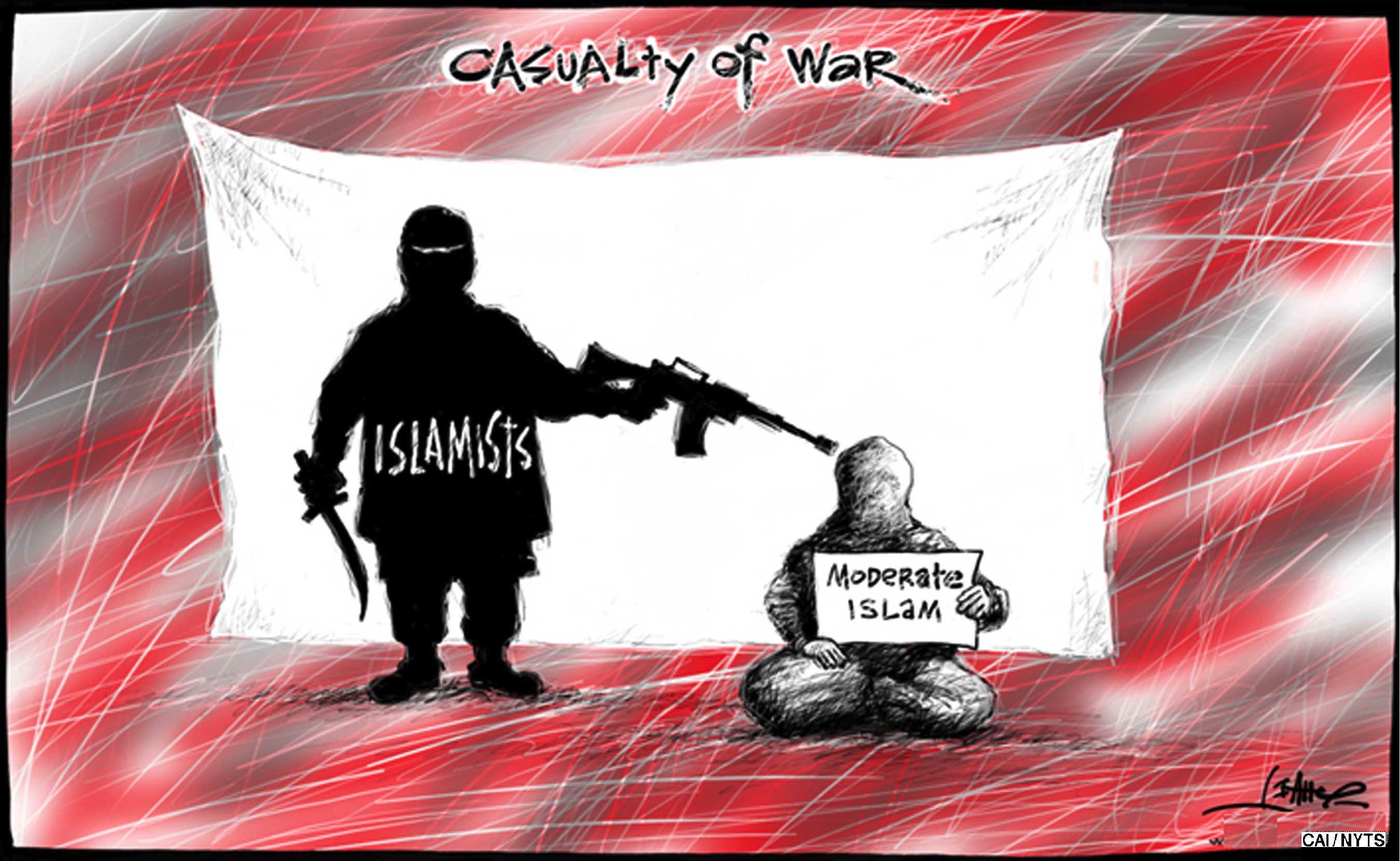How Extremists Twist Islam for Terror: Nepal & India Must Heed This Warning!

KATHMANDU/NEW DELHI – A dangerous tide of radicalism, falsely claiming the banner of Islam, continues to pose a global threat, leaving a trail of violence, instability, and fear. From the battlefields of the Sahel to online chatrooms accessible in South Asia, extremist groups manipulate grievances and twist religious concepts to lure vulnerable individuals into their deadly fold. Understanding this deceptive ideology, its drivers, and its devastating impact is crucial – especially for diverse and interconnected nations like Nepal and India – in order to build resilience and reject extremism unequivocally.
Crucially, research underscores a fundamental distinction: the violent, intolerant creed preached by groups like ISIS, Al-Qaeda, and Boko Haram is a stark deviation from mainstream Islam, the faith peacefully practiced by over 1.8 billion people globally, constituting roughly 75% of the world's Muslims who center their lives on the Quran and Sunna's teachings of peace and coexistence.
The Twisted Ideology: Misusing Faith for Violence
Radicalism committed in the name of Islam, as defined by academic sources and observed in groups like ISIS, hinges on the extremist belief that all other ideologies have failed and secular governance is illegitimate. These groups selectively wrench verses from the Quran and Hadith out of context to justify horrific violence. Concepts like jihad are twisted into a mandate for indiscriminate armed struggle, ignoring mainstream Islamic jurisprudence that strictly regulates warfare and protects non-combatants. They employ takfir to declare fellow Muslims "infidels," thereby sanctioning their murder – a practice condemned by orthodox Islam. Their narrative, obsessed with distorted notions of a global Umma (Muslim nation) and Khilafa (caliphate) enforced by rigid Sharia, often ignores complex realities and internal Muslim conflicts, focusing instead on simplistic narratives of victimhood and anti-Western sentiment, as noted by BBC News analyses.
Why Individuals Fall Prey: Exploiting Vulnerability
The path to radicalization is complex, often exploiting a cocktail of genuine grievances and psychological vulnerabilities. Researchers point to "push factors" such as political oppression, lack of economic opportunity, poverty, perceived injustices, and foreign interventions – conditions that can breed resentment and desperation in various parts of the world, including potentially vulnerable communities in South Asia. Compounding these are "pull factors": sophisticated online propaganda offering a sense of belonging, purpose, or glory; the influence of radicalized social networks; and the sway of charismatic extremist leaders. Studies show how feelings of alienation or perceived cultural threats can make individuals susceptible to these poisonous ideologies, which promise simple answers to complex problems.
The Devastating Cost: Beyond the Battlefield
The impact of this radicalism is catastrophic and multifaceted. Violent extremist groups unleash terror on civilians – frequently targeting fellow Muslims who reject their ideology – destabilize governments, and fuel cycles of conflict, as tragically witnessed across the Middle East and the Sahel. Beyond the immediate violence, their actions have devastating social consequences. They provide fodder for Islamophobia globally, leading to discrimination and suspicion against entire communities. Significantly, a vast majority of Muslims themselves are deeply concerned about extremism; Pew Research found 82% of American Muslims worry about global extremism, highlighting the damage inflicted upon the religion's image by a violent fringe.
The Fight Back: Countering Extremism from Within
Crucially, the fight against this radicalism is actively being waged from within mainstream Muslim communities and institutions. Leading Islamic authorities have consistently and forcefully condemned terrorism and extremist interpretations. For instance, Shaykh Muhammed Sayyid al-Tantawi, the late Grand Imam of Egypt's prestigious Al-Azhar University, declared attacks on innocents "stupid, not courageous" shortly after 9/11. The Saudi Council of Senior Religious Scholars issued a fatwa deeming bombings and bloodshed criminal acts for which Islam is not responsible. The Organization of Islamic Conference (OIC) has repeatedly denounced terrorism as contrary to divine religions. These theological counter-narratives, alongside community-based resilience programs and government CVE strategies, are vital tools in dismantling extremist propaganda and addressing the root causes like political instability and economic hardship.
The South Asian Context: A Call for Vigilance in Nepal and India
For Nepal and India, with their shared open border, diverse populations, and complex socio-political landscapes, vigilance against radical influence is paramount. The same drivers identified globally – economic hardship, political grievances, online propaganda – can potentially be exploited by extremist recruiters targeting vulnerable youth in the region. While both nations have their own security challenges, fostering social cohesion, promoting critical thinking against online disinformation, strengthening community resilience, and ensuring inclusive governance are essential preventative measures. It requires a collective effort from governments, civil society, educators, families, and faith leaders to inoculate communities against extremist narratives, regardless of their origin.
A Call to Reject Hate, Embrace Humanity
The narrative peddled by extremists is one of hate, division, and violence, fundamentally betraying the core tenets of peace, compassion, and justice found within mainstream Islam, exemplified by Quranic verses emphasizing the sanctity of human life (e.g., Qur’an 5:32). Falling prey to radical ideologies leads only to destruction – personal, communal, and societal. The path forward lies in education, critical thinking, empathy, and strengthening the moderate voices that champion peace and coexistence. We must collectively reject the siren call of extremism and work towards building societies where grievances are addressed peacefully, opportunities are shared, and diversity is celebrated as a strength.
Acknowledgement: It is vital to remember and acknowledge that the overwhelming majority of Muslims around the world practice their faith peacefully, contributing positively to their communities and condemning violence and extremism. The actions of radicalized individuals and groups operating under a distorted interpretation of Islam do not represent the diverse and peaceful global Muslim population.
(Notice)
(The author of this [article/material/opinion] is anonymous and wishes to keep their identity confidential.)




![From Kathmandu to the World: How Excel Students Are Winning Big [Admission Open]](https://nepalaaja.com/img/70194/medium/excel-college-info-eng-nep-2342.jpg)
